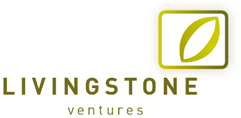investing profitably in sustainable food production

We believe it is possible to feed the world of the future by applying high-tech Dutch greenhouse technology. It will make agriculture more productive, more efficient and more sustainable. This calls for enormous investment volumes.
To achieve this, it is important to turn horticulture into a food production and distribution system that is more just, more environmentally friendly and more sustainable. That calls for innovative models and the application of intelligent Dutch technologies to increase productivity and efficiency.
Investors often think that commodity speculation with food is a controversial issue. But the global challenges involves doubling food production levels and fighting hunger. To achieve this, urgently needed capital has to flow into agricultural projects.
New technologies, product platforms and innovative business models in agriculture technology and food systems will drive the shift from a conventional, environmentally harmful and socially detrimental form of industrial agriculture to a more socially just and environmentally sustainable food production and distribution system.
Agricultural supply is expected to fall far short of demand over the coming decades, particularly as developing and emerging economies develop further and consumption levels increase. McKinsey, for example, estimates that land supply would have to increase by 250% over the next two decades, compared with the rate at which supply expanded over the past two decades. There is, therefore, vast room for technological development in today’s agricultural sector to boost productivity and efficiency and we expect a transition to “smart” agricultural technologies over the next decade and beyond. Agriculture is a vast and growing sector; as such, it presents massive investment opportunities.
Going into the future, “smart” (and “climate smart”) agriculture will include advanced irrigation and precision technologies, benign environmental residues from chemicals, an efficient distribution and marketing system for producers and a consumer-led demand market for sustainably grown foods.
Reducing waste in the food system presents an investment opportunity with resource productivity savings worth $340 billion globally, per year, by 2030. This opportunity spans from high-income economies where supply chains are more efficient to middle- and low-income economies with less advanced supply chains (such as modern cold storage systems). In high-income economies a majority of the waste is either at the farm – where products are discarded because they do not meet quality specifications or because of over production – or by the end user. In middle- and low-income economies, however, inadequate supply chain infrastructure means that waste is concentrated, from post-harvest to distribution. (Deutsche Bank, 2018)
Livingstone solutions provide proven horticultural technology that a is ready for the future and can provide interesting returns at minimal risk.
In a world where the demand for safe food is increasing every day, investing in food production can be a long-term profitable business. Investing in horticultural food production can make a significant contribution to a problem that will hold the world firmly in its grip in the coming decades.
